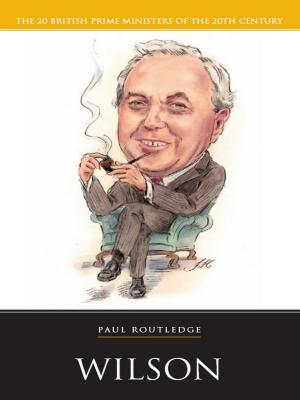| Author: | Peter Neville | ISBN: | 9781907822094 |
| Publisher: | Haus Publishing | Publication: | January 4, 2011 |
| Imprint: | Haus Publishing | Language: | English |
| Author: | Peter Neville |
| ISBN: | 9781907822094 |
| Publisher: | Haus Publishing |
| Publication: | January 4, 2011 |
| Imprint: | Haus Publishing |
| Language: | English |
Of even greater importance for Hungary's future were the activities of the champions of an independent state of Czechs and Slovaks. Tomas Masaryk, a Czech professor of philosophy and a future leader of his people, was hard at work within a month of the outbreak of war lobbying in Paris and London for an independent Bohemia, still a major component of the Austrian Empire within the Austro-Hungarian Monarchy, which would incorporate the predominantly Slovak regions of northern Hungary. Masaryk, who was assisted in his efforts by Eduard Benes, a bitter enemy of the Habsburgs. Thus the new state was effectively shaped before the Paris Peace Conference. But the Conference laid down the seeds of Czechoslovakia's later destruction. Only nine million Czechoslovaks lived in the state out of a population of fourteen million. A large discontented Hungarian minority lived in Slovakia, and the Polish majority area of Teschen poisoned Czech-Polish relations. Yet the greatest challenge came from the rise of the Nazis in Germany in 1930s: Masaryk always claimed that he did not want three and half million ethnic Germans, but he and Benes accepted them nonetheless. Masaryk died in 1937, and Britain and France would not support the Czechs over the Sudetenland, the infamous deal struck in Munich by Neville Chamberlain and Adolf Hitler.
Of even greater importance for Hungary's future were the activities of the champions of an independent state of Czechs and Slovaks. Tomas Masaryk, a Czech professor of philosophy and a future leader of his people, was hard at work within a month of the outbreak of war lobbying in Paris and London for an independent Bohemia, still a major component of the Austrian Empire within the Austro-Hungarian Monarchy, which would incorporate the predominantly Slovak regions of northern Hungary. Masaryk, who was assisted in his efforts by Eduard Benes, a bitter enemy of the Habsburgs. Thus the new state was effectively shaped before the Paris Peace Conference. But the Conference laid down the seeds of Czechoslovakia's later destruction. Only nine million Czechoslovaks lived in the state out of a population of fourteen million. A large discontented Hungarian minority lived in Slovakia, and the Polish majority area of Teschen poisoned Czech-Polish relations. Yet the greatest challenge came from the rise of the Nazis in Germany in 1930s: Masaryk always claimed that he did not want three and half million ethnic Germans, but he and Benes accepted them nonetheless. Masaryk died in 1937, and Britain and France would not support the Czechs over the Sudetenland, the infamous deal struck in Munich by Neville Chamberlain and Adolf Hitler.















